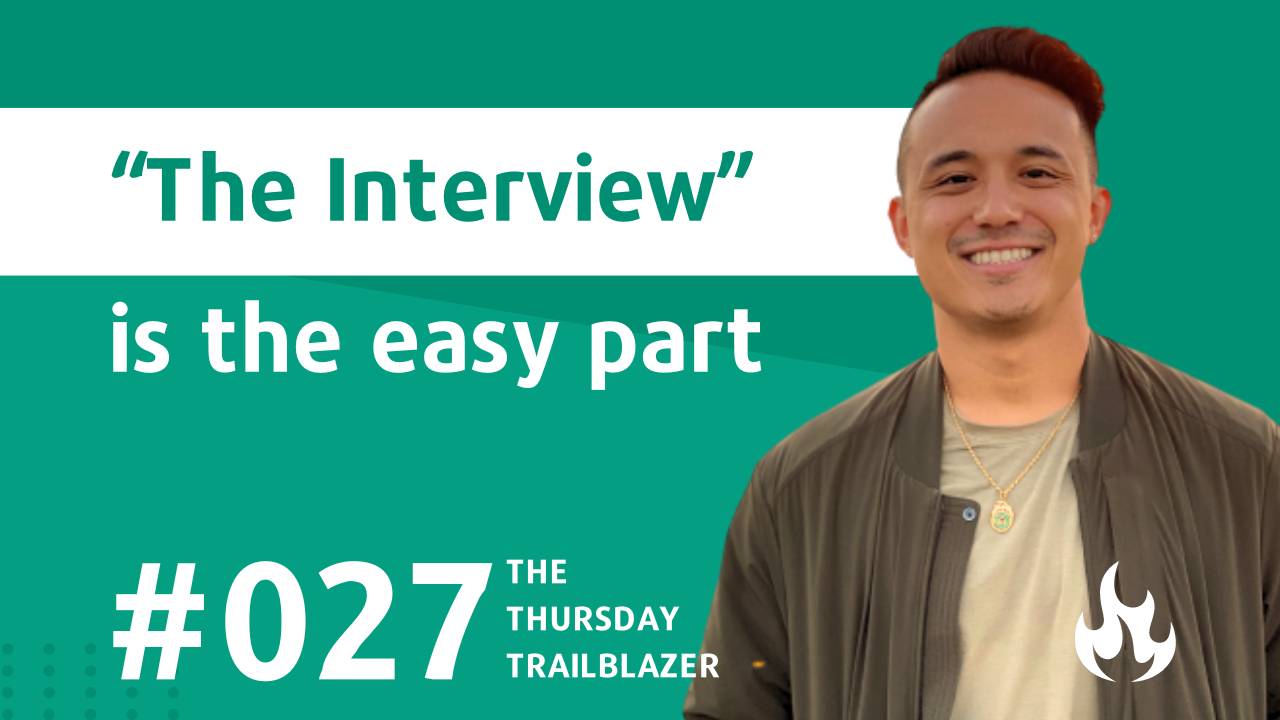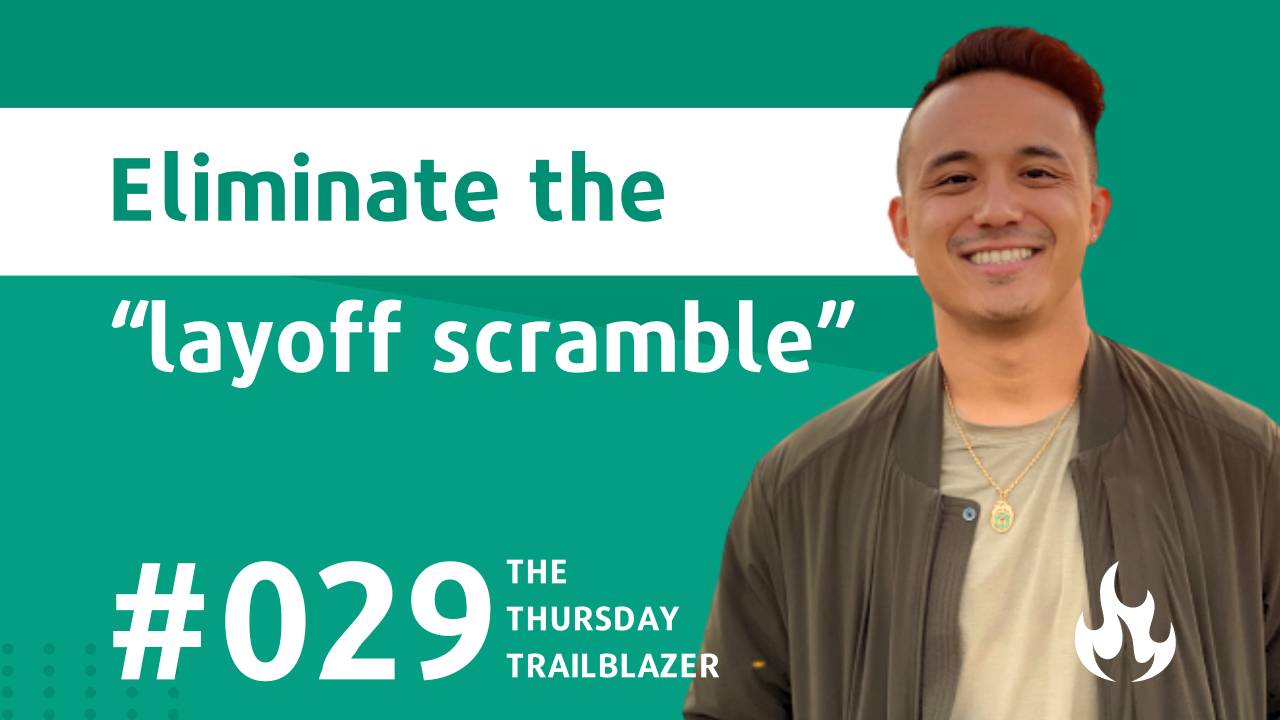9 Things To Do In An Interview
The interview stress is often blown out of proportion. It's a conversation, not a test. Here are 9 things to do during your next interview.

This is part of a special series sharing insights, tips, and actions you can implement when searching for a job — whether leaving your current one or due to a recent layoff.
We have been trained for an interview to feel like a test.
The preparation. The stress. The all-or-nothing game time moment of being drilled with questions. 🤮
That’s all wrong.
It’s a conversation.
Yes, we did talk about how to prepare for an interview previously “like a test”… but the actual interview stress is often blown out of proportion.
1. Select the Appropriate Attire
Walking into a law firm with flip flops and t-shirt may not be the most appropriate… but could be perfect if you were interviewing for a surf shop.
Regardless if it’s remote or in person — what you wear matters.
My general rule of thumb is to dress “one level up” than the everyday expectation.
- If the team wears t-shirts, I’ll come in a collared shirt
- If the team wears collared shirts, I’ll come in a shirt and tie (no jacket)
- If the team wears a dress shirt and jacket, I’m throwing on a tie
At the end of the day — it’s all part of the game. 🤷♂️
2. Being On Time Is Late
In high school I was part of a business organization called DECA. There was a saying that we had:
If you’re early, you’re on time. If you’re on time, you’re late. If you’re late, you’re fired.
Regardless if it’s remote or in person, be ready at least 15 minutes early.
This not only allows you some time for something to go wrong… but also allows you to gather yourself.
If you are having a remote interview, check your tech. You don’t want to join on-time only to realize you need to spend 5 minutes updating the software.
You’re now 5 minutes late.
3. Breaking the Stranger Barrier
The first 3 minutes of an interview are essential. It’s going to set the tone for the rest of the interview.
My approach? I start the conversation off like a friend that I haven’t seen in a while. Lighthearted and catching up. Then we can dive into the interview.
4. Know Your Resume and LinkedIn Profile
The only thing the interviewer will know about you is what you already provided — in most cases, your resume.
But I have found that some interviewers really prep and have also already reviewed your LinkedIn profile. So if there is anything that isn’t aligned… fix that.
You don’t need to memorize your resume. But at least know what you included on it so that if someone references it — it’s not a surprise.
5. Answering Questions with STAR Method Stories
There is a framework that allows you to be short and concise with how you answer: STAR Method.
- Situation
- Task
- Action
- Result
The best part is that you don’t need to develop and memorize a bunch of stories. You only need to know 3 to 4 past work situations… that you can then tailor to almost any question that is asked.
6. Understand the Job Description
Though most job descriptions are vague… some are extremely descriptive and informative.
There have been times that I was interviewing candidates and they were asking me questions that were already in the job description. The questions weren’t from a place of wanting to learn more… but from learning about something for the first time.
(-1) point for lack of attention to detail.
7. Interviewers Going Off Script
Interviewers will ask questions you may not expect… well at least it’ll feel that way.
Remember: it’s a conversation.
I’ve been in interviews where we spent the entire time getting to know each other. The conversation was great! Towards the last 5 minutes — we needed to rush through the “mandatory” questions.
That is the goal of a great interview.
8. The Interviewee Becomes the Interviewer
Remember when I said this is a conversation between two people? That means that you will be able to learn from the interviewer as well.
You want to make sure that this role, team, and company is a good fit for you too!
At the 30,000 foot level, I am looking to learn about:
- The culture and values of the company
- Should I expect to work late into the night and on weekends?
- How are decisions made within the team?
- Does the company value innovative approaches?
Don’t be afraid to ask.
9. Additional Information to Know
Knowing what are the next steps in the interview process is essential.
- How many interview conversations or take home assignments should you expect?
- What is the timeline they are looking to fill this role?
- What is the expected compensation range for this role?
Hot take: Ask about the compensation range with your initial recruiter call.
The conversation will happen eventually. And the worst situation is spending all the time going through the process… only to find out that the compensation is far below what you’ll accept.
You can save yourself a ton of time if you ask upfront.
💡 Action Steps
A 30-minute action plan to make sure you are ready during your interview.
- 🤓 Review your resume (5 minutes) — Make sure you know what’s on it
- 📝 Practice your STAR Method Stories (15 mins) — Know which 3-4 stories you’ll tailor
- 💬 Determine what you want to know (7 mins) — Prepare unique questions
- 🧑💻 [Remote] Confirm your home setup is ready (3 minutes) — Test your tech
Remember: It’s your moment to shine, so step into it with confidence and clarity.
You’ve got this! 💪
This article is for educational purposes and not career advice.
Keep Reading

Build a Team, Not a Family: The Operating Model Behind 10x Startups
If you want to win by a mile, you can't run your company like a family. Here's what "Olympic-level" standards actually look like in a startup.
First Day of the Year: Reflect. Refine. Execute.
January 1 is the one day each year that feels universally quieter. That makes it the perfect day for reflection. Here's my annual ritual.

Three Things I'm Doing To Prevent Being In Between Jobs
Layoffs are still in full swing. Here's what I'm doing to prepare myself while I still have a job — so I'm never caught off guard.